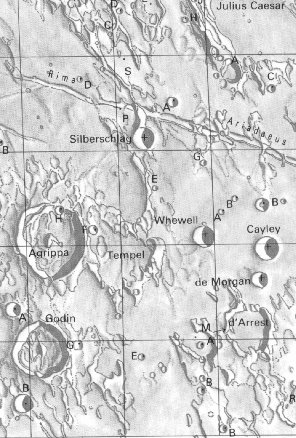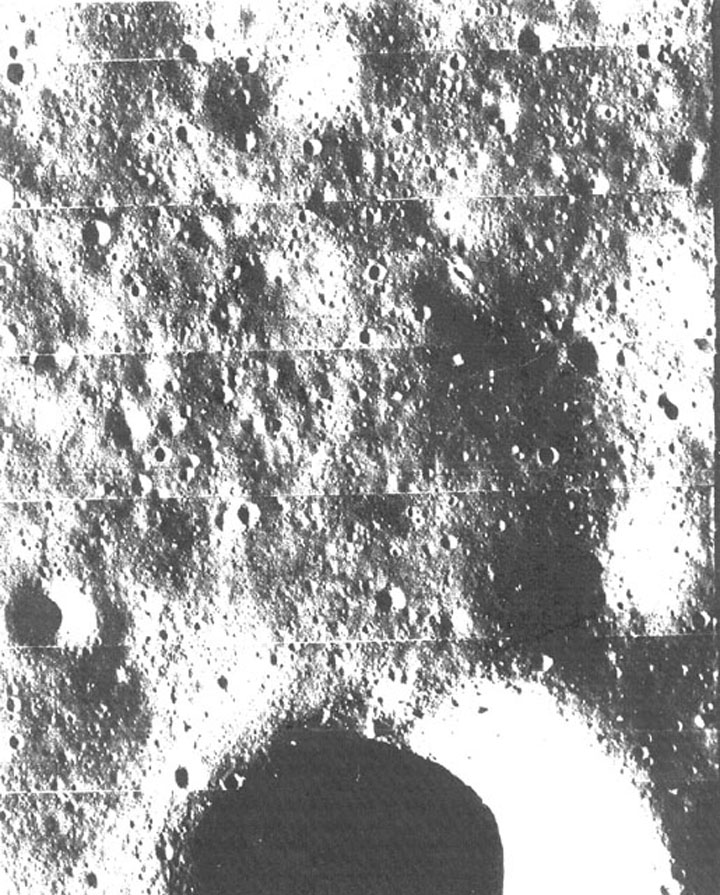
Part of the Rukl Chart

Part of the Rukl Chart
One of the first things we accomplished in the research by The Lunascan Project was the re-discovering of the location of the Blair Cuspids. And although a search for other images was also successful (VGL located another NASA frame), an EBTI (Earth-Based Telescopic Imaging) search has not turned up anything. One of the problems might lie in not knowing exactly where to look, but it is doubtful that any EBTI would be anywhere close to the resolution needed. However, new imaging, especially by future lunar space probes might yield something, so this web page is for those wanting to know exactly where to look.
Represented here is the SE quadrant of Rukl Section chart 34. The Blair Cuspids are located a little east of and near Aeriadaeus B, which is immediately above the crater Cayley. For reference, Cayley is 14.3 km wide and 3130 meters deep. North is up.
For some high-res orbiter views of the area, see Lunar Orbiter image LO4-90H1. Aeriadaeus B is the crater near the center of the image, just SE of the conspicuous white triangular blotch or image flaw:

Footprint of LO II
The best images, and the ones revealing the Cuspids, are from Lunar Orbiter II. This footprint graphic of Lunar Orbiter II ("M" or medium res) shows the area north of Cayley and the crater Aeriadaeus B.
Below is the "H" or high res image of Aeriadaeus
B.

Lunar Orbiter II frame (LO2-62H3) supplied by VGL
Of the 6-1/2 framelets above, the Cuspids are in the bottom half of framelet number 4, in the dark area. The features stand out as bright points of light against a dark sloping lunar surface.
Here is the area to the left of the Cuspids, scanned at 337 DPI by VGL. Aeriadaeus B is the one-kilometer crater and the Cuspids are off-screen a few hundred meters to the right. Note the shadow in Aeriadaeus B. The shadows cast by the Cuspids are also evident in LO2-62H3.
Francis Ridge
Coordinator,
The Lunascan Project